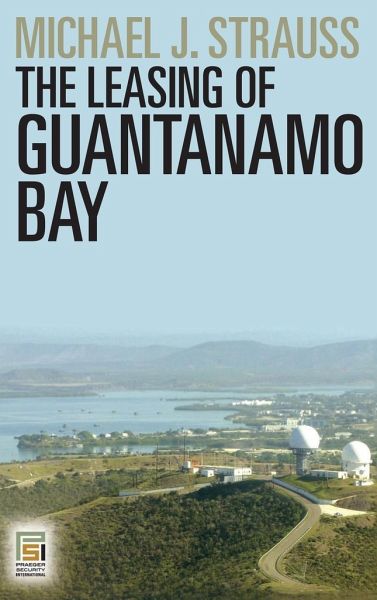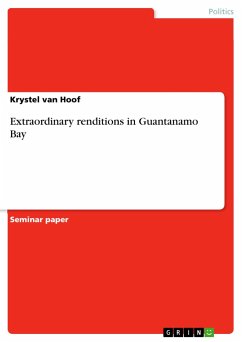
The Leasing of Guantanamo Bay
Versandkostenfrei!
Versandfertig in 1-2 Wochen
79,99 €
inkl. MwSt.
Weitere Ausgaben:

PAYBACK Punkte
40 °P sammeln!
Post-2002 events at the U.S. naval facility at Guantanamo Bay have generated a spate of books on its use as a detention center in the U.S. fight against terrorism. Yet the crucial enabling factor-the lease that gave the U.S. control over the territory in Cuba-has till now escaped any but cursory consideration. The Leasing of Guantanamo Bay explains just how Guantanamo Bay came to be a leased territory where the U.S. has no sovereignty and Cuba has no jurisdiction. This is the first definitive account of the details and workings of the unusual and problematic state-to-state leasing arrangement ...
Post-2002 events at the U.S. naval facility at Guantanamo Bay have generated a spate of books on its use as a detention center in the U.S. fight against terrorism. Yet the crucial enabling factor-the lease that gave the U.S. control over the territory in Cuba-has till now escaped any but cursory consideration. The Leasing of Guantanamo Bay explains just how Guantanamo Bay came to be a leased territory where the U.S. has no sovereignty and Cuba has no jurisdiction. This is the first definitive account of the details and workings of the unusual and problematic state-to-state leasing arrangement that is the essential but murky foundation for all the ongoing controversies about Guantanamo Bay's role in U.S. anti-terrorism efforts, charges of U.S. human rights violations, and U.S.-Cuban relations. The Leasing of Guantanamo Bay provides an overview of territorial leasing between states and shows how it challenges, compromises, and complicates established notions of sovereignty and jurisdiction. Strauss unfolds the history of the Guantanamo Bay, recounting how the U.S. has deviated widely from the original terms of the lease yet never been legally challenged by Cuba, owing to the strong state-weak state dynamics. The lease is a hodge-podge of three U.S.-Cuba agreements full of discrepancies and uncorrected errors. Cuba's failure to cash the annual rent checks of the U.S. has legal implications not only for the future of Guantanamo Bay but of the Westphalian system of states. Compiled for the first time in one place are the verbatim texts of all the key documents relevant to the Guantanamo Bay lease-including treaties and other agreements, a previously unpublished U.N. legal assessment, and once-classified government correspondence.













